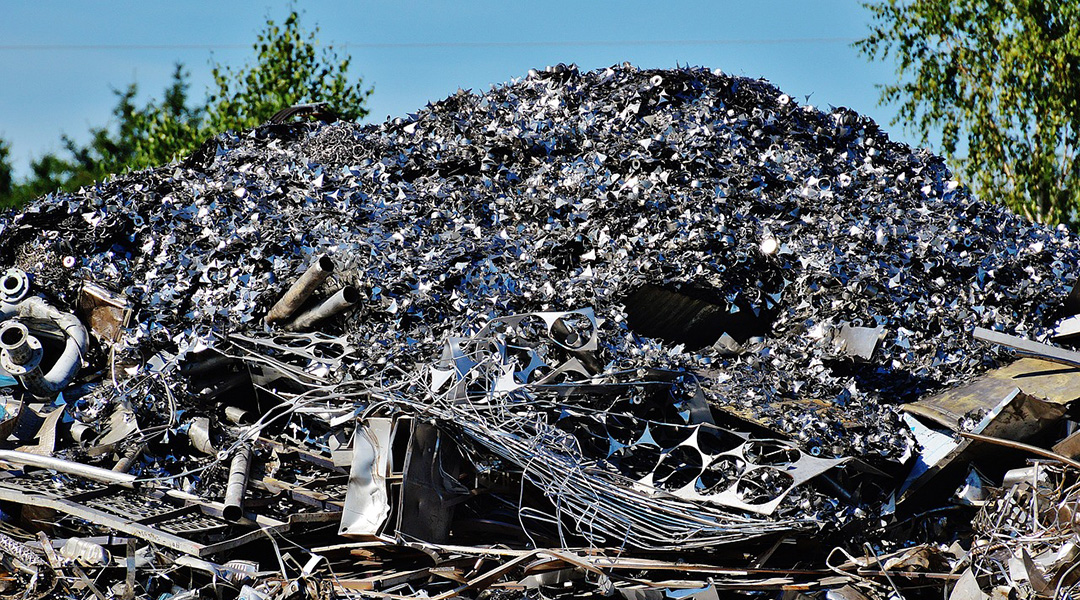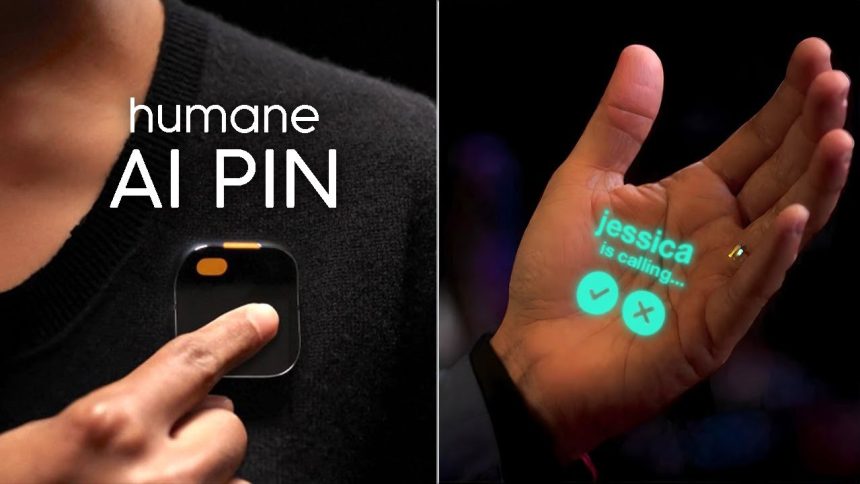The Humane AI Pin
The Humane AI Pin was marketed as the next breakthrough in wearable technology, but it failed to gain traction, instead highlighting AI’s growing role in the global e-waste crisis.
Developed by AI startup Humane, the pin was designed to be worn on clothing and allowed users to interact with a virtual assistant by tapping the device.
But thousands of these $700 devices are now worthless after Humane ceased operations in February, selling its assets to HP for $116 million. With poor demand and lackluster reviews, the product was dropped, and the pins went dark on February 28.
Experts say that AI-enabled wearables such as the Humane AI Pin are especially difficult to recycle because of the extensive use of adhesives in their production, which poses a question about the sustainability of AI technology.
Berrin Tansel, a professor of civil and environmental engineering at Florida International University, explained that such products are made to cater to the tastes and price of consumers, with market demand and availability being considered first.
According to the latest figures from the United Nations global e-waste monitor, up to only 22.3% of the 62 billion kilograms of e-waste generated worldwide in 2022 were recycled. This shows the persistent challenge in managing electronic waste and its effects on the environment.
Despite all these problems, the demand for technology continues to rise. Wearable technology, in particular, is actually expected to see an exponential growth in the future, contributing to e-waste.
The International Data Corporation, a global analytics firm, estimates that more than 600 million wearable devices will be produced by 2028, from 20% in comparison to 2023. The surge in production raises questions about sustainability as well as the recycling potential of these devices.
“(Wearable) technology and AI are addictive for users. They advance our capabilities above and beyond natural possibilities,” noted Tansel. “Gadgets are coveted to be thinner and lighter in weight.
That renders material recovery for recycling quite impossible. Even when material recovery is feasible in the case of certain metals in products discarded from use, recovery is not viable economically.”

Wearable Wastes
Electronic recyclers initially recover parts that are still usable, like screens, speakers, and chips, to resell or reuse. The rest of the device is then disassembled to recover rare metals. Humane urges users to recycle their pins through local e-waste programs, keeping waste out of landfills.
Humane boasts on its website that it is committed to sustainability and that both their devices and packaging are responsibly recyclable. But a technician at repair company iFixit, Shahram Mokhtari, identifies a very serious issue: Humane’s excessive use of glue in products makes recycling harder, more expensive, and detrimental to the environment.

According to Mokhtari, the additional work of de-assembling such glued components reduces the profit margin for recyclers, making it often non-profitable. This he adds to with the argument that a percentage of the inputs and efforts directed into producing the devices cannot actually be recovered in recycling, further rendering the process unachievable sustainably.
“This product was environmentally harmful even when it was being produced. Batteries stuck in and essentially non-removable will always be contributing to unnecessary waste and pollution,” Mokhtari wrote in an email to the Thomson Reuters Foundation. “This is now a permanent loss for consumers and the earth, one which can never be regained,” he added.
Asked by the Thomson Reuters Foundation what they intend to do with the recycling of the pins, Humane responded by email by sending them a link to recycling tips on its website but refused to comment further. HP did not directly reply to a request for comment.
Another highly sought-after wearable is Meta’s Ray-Bans—glasses that have microphones, speakers, and an AI assistant. Meta, the firm producing the glasses, has sold over 2 million of them since 2023, according to EssilorLuxottica.
When the Thomson Reuters Foundation asked Meta about recycling plans for the glasses, they pointed customers to a blog post telling them to turn to local authorities or waste disposal for assistance.
But in December 2023, iFixit showed a video exposing how hard it is to exchange the battery and how frequently items need to be taken out through destroying the plastic casing.
“If you take apart these glasses, don’t expect to put them back together,” the video stated. “They’re stylish, but at the end of the day they’re just e-waste driven by vanity.”
Meta refused to comment when asked to explain how it plans to make future products more recyclable.
Long-life laws
Elizabeth Chamberlain, head of sustainability at iFixit, is campaigning for fresh legislation that would compel smartphones, laptops, and AI-powered wearables to have replaceable batteries. This would reduce the wastefulness of electronics and make them more sustainable.
The 2023 European Union battery regulation aims to address these problems by making batteries low in carbon emissions, minimizing the use of harmful materials, and relying less on raw materials. The directive also focuses more on collecting, reusing, and recycling batteries at a high rate to improve a circular economy.
Despite this, a T&E, a green pressure group focused on clean energy and transport, 2024 report indicates the recycling capacity shortfall is big. As the report states, currently, the EU and Britain have fewer than 10% of recycling facilities needed to achieve their 2030 recycling ambition. This is a reflection of the challenges involved in raising recycling systems to cater to ambitious climate ambitions.
Conversely, there is no such national legislation in the United States to regulate battery sustainability and recycling, and the country is therefore left behind in the fight against the growing menace of e-waste. Without such legislation, America risks falling behind in the promotion of sustainable practices for batteries and other electronics. Chamberlain’s call for legislation emphasizes the urgent need for the world to make products greener and recyclable.
Conclusion
The Humane Ai Pin, which was being billed as a revolutionary product, has come to an ignominious end due to its multitude of technical problems and unrealistic applications. With sales halted and the product set to be obsolete by February 2025, Humane is offering refunds for purchases made recently.
HP’s acquisition of Humane’s assets, including its patents, employees, and Cosmos operating system, signals a new dawn. HP plans to integrate Humane’s AI tech into products, with the aim of adding functionality and living up to the promises of AI. However, the failure of the Ai Pin is a reminder of the challenge of transforming grand tech aspirations into viable products. While HP’s efforts offer promise for the future of development, the outcome is uncertain, serving as a reminder of the pitfalls and risk in the tech industry.









